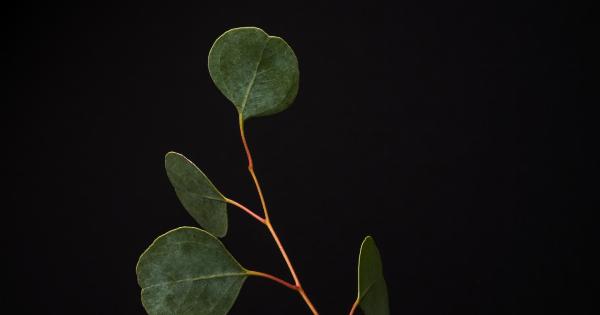Migraine headaches are severely debilitating, often accompanied by throbbing pain, nausea, and sensitivity to light and sound.
While there are several medications available to manage migraines, they often come with unwanted side effects and may not be suitable for everyone. If you’re seeking natural alternatives to alleviate the symptoms of migraines, certain herbs possess potent properties that can provide relief.
In this article, we will explore six herbs known for their effectiveness in reducing migraine headaches.
1. Feverfew (Tanacetum parthenium)
Feverfew has been used for centuries as a herbal remedy for migraines. It contains a compound called parthenolide, which helps reduce inflammation and prevent the constriction of blood vessels in the brain, leading to fewer migraine attacks.
To use feverfew, you can consume it as a tea, in capsule form, or even utilize its essential oil for topical application.
2. Butterbur (Petasites hybridus)
Butterbur is another popular herb known for its migraine-relieving properties. The active compounds in butterbur, such as petasin and isopetasin, help relax blood vessels and reduce muscle spasms, resulting in decreased migraine frequency and intensity.
It is important to note that in order to avoid liver toxicity, it is recommended to use butterbur products that are labeled “PA-free” (free from pyrrolizidine alkaloids).
3. Peppermint (Mentha piperita)
Peppermint is a widely recognized herb for its calming and soothing effects. It contains menthol, which acts as a natural pain reliever and muscle relaxant.
In the case of migraines, peppermint can help alleviate tension and relieve headaches when applied topically as a diluted essential oil or massaged onto the temples.
4. Ginger (Zingiber officinale)
Ginger has long been utilized for its anti-inflammatory properties and ability to ease nausea. It is particularly beneficial in relieving migraines caused by gastrointestinal issues or hormonal imbalances.
Ginger tea or ginger capsules can be consumed to combat migraines, as well as using ginger essential oil topically through gentle massage.
5. Lavender (Lavandula angustifolia)
Lavender is renowned for its relaxing and calming scent, which can help reduce stress and tension that often trigger migraines. Inhalation or topical application of lavender essential oil can provide relief from headache symptoms and promote relaxation.
Additionally, adding a few drops of lavender oil to a warm bath can aid in relaxation and soothe tension-induced migraines.
6. Willow Bark (Salix spp.)
Willow bark contains salicin, a compound similar to aspirin but with fewer side effects. It has been traditionally used to relieve headaches, reduce fever, and alleviate pain.
To utilize its migraine-relieving properties, you can brew willow bark tea or find it in capsule form.
Tips for Using Herbs for Migraine Headaches
While these herbs can be highly effective in managing migraines, it is vital to keep in mind a few important tips:.
1. Consult with a healthcare professional
Before incorporating any new herbs or supplements into your routine, it’s essential to consult with a healthcare professional, especially if you have any underlying health conditions or are taking other medications.
2. Start with small doses
When trying herbal remedies for the first time, it’s advisable to start with small doses to monitor their effects on your body. This way, you can determine if the herb is suitable for you and whether any potential side effects occur.
3. Be consistent
Herbal remedies often require consistency for optimal results. It may take time for your body to adjust and respond to the herbs, so be patient and give them a fair chance to work. Regular use is key to experiencing the full benefits.
4. Keep a migraine diary
Keeping a migraine diary can help you identify triggers and determine which herbs provide the most relief. Make note of when migraines occur and the herbs you are using, allowing you to track their effectiveness over time.
5. Combine with a healthy lifestyle
While herbs can offer significant relief, it’s important to adopt a healthy lifestyle overall. Proper hydration, regular exercise, stress management techniques, and a balanced diet can contribute to reducing migraine frequency and intensity.
Conclusion
Migraine headaches can be incredibly debilitating, impacting daily life and productivity. If you are seeking natural alternatives to manage your migraines, consider incorporating these six potent herbs into your routine.
Each herb possesses unique properties that can provide relief, whether it’s reducing inflammation, relaxing blood vessels, alleviating tension, calming nerves, or easing pain. Remember to consult with a healthcare professional, start with small doses, and be consistent in their usage.
Along with other healthy lifestyle practices, these herbs can become valuable allies in your journey towards a life with fewer migraine headaches.























